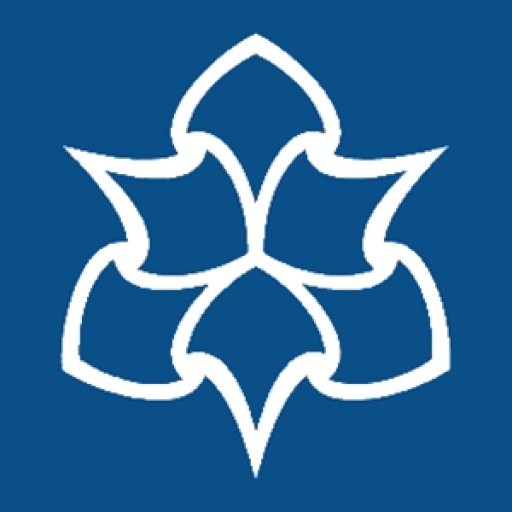Photos of university / #unibirmingham
Description
African Studies is a broad degree programme which combines arts and social science approaches. Most of our students enter the degree programme with an enthusiasm for, and interest in, either Africa or Anthropology, but few have studied these subjects at school or college. So in your first year in particular, we will help you to adapt to new ways of working and to gain confidence in approaching unfamiliar topics. As you progress, you will be able to follow up a range of topics in greater detail, culminating in your final-year dissertation.
Detailed Course Facts
Tuition fee Not specified Start date September 2015 Credits (ECTS) 360 ECTSDuration full-time 36 months Languages Take an IELTS test
- English
Course Content
First year
All first-year students take our Focus on Studying Societies module, which involves working with a tutor in a small group and trying out all the basic steps in researching, planning and writing a university-level essay. After receiving detailed one-to-one feedback on this assignment, you will then choose your own topic, practising the same skills in researching and planning, and working as a group to prepare a presentation, developing your teamwork and oral communication skills.
Youll also have a series of options which allow you to explore aspects of African History, Politics, Culture, Geography, Society and Development, giving you an awareness of the diversity of the continent.
Optional modules include:
- African societies
- Doing development
- Introduction to African culture
- Introduction to African history
- Introduction to African societies
- Introduction to African politics
- Introduction to geography and Africa
- Thinking anthropologically
Second year
Most modules in year two encompass a mix of lectures, seminars or group work, and independent reading. We prefer project work and assessed essays to timed exams because we believe these forms of assessment develop the skills students need in employment or further study.
In this year, you will take the compulsory Perspectives on Africa module; a student-led seminar course that takes on issues of immediate contemporary concern in Africa, focusing on the way theyre debated in Africa itself and situating these debates in their global context.
Options (second and third year)
- Aid, NGOs and Development
- The African Canon
- African new writing
- African popular culture
- African religion and ritual
- Atlantic slavery: West Africa and the Caribbean
- Caribbean fiction
- Caribbean poetry
- Gender and development in Africa
- Ghana: state and society
- Independent Study
- Rural livelihoods and development interventions in West Africa
- Social life of the economy
- South Africa in the 19th century
- South Africa in the 20th century
- South Africa since apartheid: politics and culture
- Theory, Ethnography and Research
- Trajectories of emancipation
Third year
In your final year, you can choose your taught modules from a list available within the department. Students will be taught in a combination of lectures and seminars and will be able to develop more specialised knowledge and analytical skills, often drawing on the first-hand research experience of their tutors. Final year students take one 40 creditdissertation, plus four African Studies optional modules of 20 credits each, of which one may be an Module Outside the Main Discipline.
The number of taught modules is slightly fewer in the final year because of the emphasis that we place on the Dissertation. This is the culmination of the enquiry-based learning that students have been working towards throughout their degree programmes. With the guidance of an academic supervisor in a series of one-to-one meetings, you will have the opportunity to identify a topic that is of particular interest to you, formulate relevant and interesting questions, search for and evaluate different sources of information, and present your findings and conclusions in a 10,000 word dissertation.
In order to support you through this potentially daunting task, we arrange a series of workshops in which students present their work-in-progress, and receive useful feedback from members of the academic staff and their fellow students. Your supervisor will also read and comment on your drafts in order to help you produce a well-organised and well-presented piece of work. Successful completion of a dissertation enables students to demonstrate a wide range of skills that are transferable to employment and to further study.
English Language Requirements
CAE score : 80(Grade A)
To study at this university, you have to speak English. We advice you to
take an IELTS test. More About IELTSRequirements
Number of A levels required: 3
Typical offer: BBB
International Baccalaureate Diploma: 32 points
Additional information:
Other qualifications are considered
We expect applicants to have an interest in Africa rather than a detailed knowledge of the continent
Work Experience
No work experience is required.
Related Scholarships*
- Academic Excellence Scholarship
"The Academic Excellence Scholarship can provide up to a 50 % reduction in tuition per semester. These scholarships will be renewed if the student maintains superior academic performance during each semester of their 3-year Bachelor programme. The scholarship will be directly applied to the student’s tuition fees."
- Access Bursary
Bursary for UK students all subjects where the variable tuition fee rate is payable.
- Alumni Bursary
Alumni Bursary for UK Undergraduate students
* The scholarships shown on this page are suggestions first and foremost. They could be offered by other organisations than University of Birmingham.






